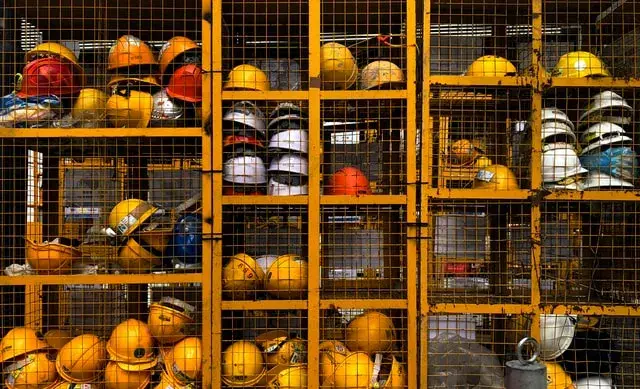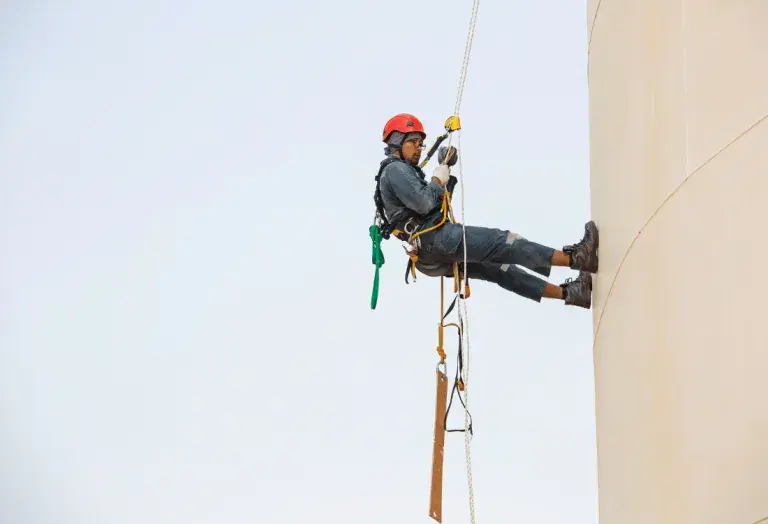How The Dangers Of Work At Height Increase When You’re Short-Staffed

Being short-staffed is a challenge for any workplace, but when the job involves work at height, it introduces a whole new level of risk. When staff are overworked from covering for absentees, the temptation to cut corners increases. This is often because of the added pressure to complete tasks quickly.
Having fewer hands on deck means the dangers of working at height are multiplied due to the team being stretched thin. From rushed work to inexperienced staff taking on high risk tasks, the hazards of carrying out work at height when understaffed can have serious, though often preventable, consequences.
Here we’ll explain the main hazards for working at height when short-staffed.
Rushed Work
When a team is short-staffed, workers may feel compelled to hurry through their duties to keep up with deadlines. This pressure can lead to cutting corners, skipping safety measures or overlooking critical steps, like properly securing harnesses or double-checking equipment.
Unfortunately, this exact kind of rushing greatly increases the dangers of working at height. Taking shortcuts may save a few minutes, but those few minutes simply aren’t worth the risk of serious accidents.
Safety Measures Compromised
Safety checks are vital when undergoing work at height, but understaffing often leaves little room for thorough inspections. Workers might forgo detailed equipment checks or bypass safety protocols to save time, creating unnecessary opportunities for mishaps.
When time is tight, it’s tempting to assume that everything is going just fine, but assumption is one of the most dangerous hazards for working at height. Vigilance must always be non-negotiable, regardless of your staffing levels.
Reduced Support
Completing work at height safely often requires teamwork. Tasks like stabilising ladders, securing equipment, or monitoring the area below, aren’t meant to be done solo. When a team is short-staffed, these roles are sometimes overlooked, forcing workers to take unnecessary risks by attempting them alone.
Without a second person, even simple jobs can become significantly more dangerous.
Inexperience On The Job
In a short-staffed environment, less experienced workers may be assigned tasks they aren’t fully trained for. This lack of expertise can lead to errors in judgement, misuse of equipment, or failure to recognise potential dangers of working at height.
Training is essential, but when it’s skipped or rushed, it leaves workers vulnerable and places them at even greater risk.
Stress And Fatigue
Short-staffing isn’t just a physical strain as it also takes a mental toll too. Managing more responsibilities with fewer resources can lead to stress and fatigue, as well as a decreased ability to focus.
This mental toll is a serious hazard for working at height, where concentration and sharp decision-making are extremely important. Even a momentary lapse in focus can result in a life-altering accident.
Find out more about avoiding the hazards for working at height when short-staffed by reading this free Working At Height Guide from Ability International. Get in touch today!
- Working At Height (64)
- injuries at work (23)
- Working at heights (22)
- Work At Height Equipment (20)
- Working At Height Equipment (16)
- desksurfer (14)
- Health & Safety (10)
- access platform (7)
- Scaffold tower hire (6)
- injuries (4)
- Rent a scaffold tower (3)
- Scaffold tower for sale (3)
- Work At Height Violation (3)
- work related injuries (3)
- Chimney Access (2)
- Scaffold tower lease (1)
- Servicing Work Equipment (1)
- case studies (1)
- scary facts (1)
Subscribe by email
You May Also Like
These Related Stories

5 Reasons Why You Shouldn’t Skip Height Training

How To Ensure Your Work-At-Height Equipment Is Safe To Use




